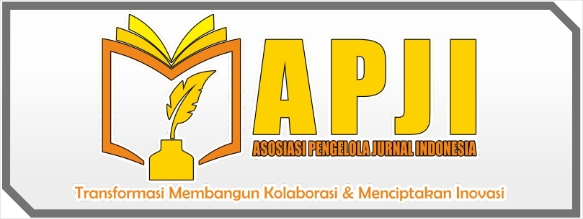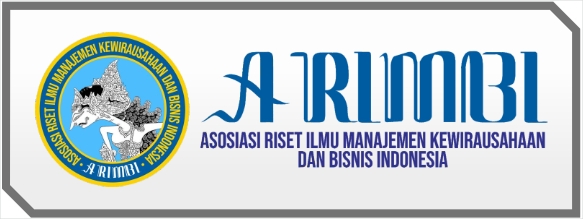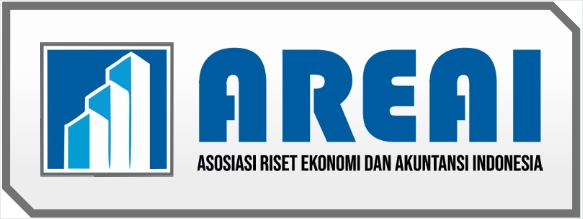Pengaruh Pelaksanaan Program Kartu Keluarga Sejahtera Terhadap Kesejahteraan Masyarakat Desa Watampanua Kecamatan Pammana Kabupaten Wajo
DOI:
https://doi.org/10.58684/jarvic.v2i2.62Keywords:
Implementation of the Family Welfare and Welfare Card ProgramAbstract
Poverty and unemployment are phenomena and social problems that are continuously being studied and are of concern to the central government of Indonesia as a developing country which is still in the process of development, especially in the economic field. Therefore, one of the programs established by the government to reduce the burden on society in meeting the needs of the poor is the Prosperous Family Card Program (KKS).
The type of research used in this research is associative survey research, namely a research formulation that is asking the relationship between two or more variables, with the main data collection technique being a questionnaire with a quantitative approach method. The quantitative research method is a type of research whose specifications are systematic, planned and clearly structured from the start to the creation of the research design.
The implementation of the Prosperous Family Card Program in Watampanua Village, Pammana District, Wajo Regency is included in the good category, as well as the welfare of the people in Watampanua Village, Pammana District, Wajo Regency, which is included in the good category. Meanwhile, the influence of the Implementation of the Prosperous Family Card Program on Community Welfare in Watampanua Village, Pammana District, Wajo Regency has a strong and positive influence.
References
Arikunto, Suharsimi. (2012). Prosedur Penelitian Suatu Pendekatan Praktek. Jakarta: Rineka Cipta
Arikunto, Suharsimi. (2012). Prosedur Penelitian.Jakarta:n Rineka Cipta.
Aziz, A. R. (2019). Implementasi Instruksi Presiden (Inpres) No 07 Tahun 2014 tentang Kebijakan Kartu Indonesia Pintar (KIP) dalam Meningkatkan Mutu Pendidikan Masyarakat Miskin di Indonesia. Jurnal Pemerintahan dan Politik, 4(2).
BKKBN, 2015. Pedoman Tata Cara Pencatatan Dan Pelaporan Pendataan keluarga. Jakarta: Badan Koordinasi keluarga Berencana Nasional
Fadhliazis, F., & Sarjono, S. (2019). Analisis dan Perancangan Sistem Pendukung Keputusan Penerima Bantuan Program Keluarga Harapan dengan Simple Additive Weighting (SAW) Pada Dinas Sosial, Kependudukan dan Pencatatan Sipil Provinsi Jambi. Jurnal Manajemen Sistem Informasi, 4(2), 126-136.
Eko Putro Widoyoko. 2012. Teknik Penyusunan Instrumen Penelitian. Yogyakarta: Pustaka Pelajar
Fahrudin, 2014.Pengantar Kesejahteraan Sosial, Bandung: Refika Aditama.
http://ejournal.pps-unisti.ac.id/index.php/JIASK/article/view/3/3. Diakses pada hari Jumat tanggal 4 November 2022 pada pukul 10:18
Intruksi Presiden No.7 Tahun 2014 Tentang Pelaksanaan Program Simpanan Keluarga Sejahtera, Program Indonesia Pintar, dan Program Indonesia Sehat Untuk Membangun Indonesia Produktif.2014. Jakarta : Bidang Kesejahteraan Rakyat Republik Indonesia
PURBA, K. A. (2022). Efektivitas Pelaksanaan Program Kartu Keluarga Sejahtera (KKS) Untuk Keluarga Miskin Di Desa Sambosar Raya Kecamatan Raya Kahean Kabupaten Simalungun (Doctoral dissertation).
Riduwan 2007. Skala Pengukuran Variabel-variabel Penelitian. Bandung: Afabeth.
Singarimbun, Masri. (2003). Metode Penelitian Survey. Jakarta: LP3ES.
Sugiyono. 2013. Metode Penelitian Kuantitatif Kualitatif dan R & D. Bandung : Alfabeta.
Sugiyono, 2001. Metode Penelitian, Bandung: CV Alfa Beta.
Sugiyono, 2009, Metode Penelitian Kuantitatif, Kualitatif dan R&D, Bandung : Alfabeta
Syamsir, N. (2014). Implementasi Program Keluarga Harapan (PKH) Bidang Pendidikan di Kecamatan Tamalate Kota Makasar. Universitas Hasanuddin.















